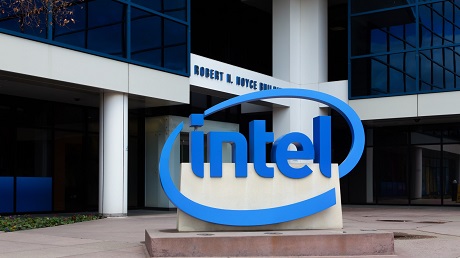As we all know, the processor leader Intel (Intel) in the past few years because of the development of new process nodes encountered bottlenecks, allowing rival AMD to have the opportunity to seize the market. According to The Register, the x86 architecture processor leader is now planning an ambitious five-year plan to regain absolute dominance in the processor market.
According to the report, Intel began this week at the 2022 IEEE VLSI Technology and Circuits Symposium to explain in detail how to make faster computing speeds, lower manufacturing costs, and more reliable processors in the near future. Most of the content of the presentation revolves around the Intel 4 node process. This process technology, previously known as the 7nm process, Intel expects to use it for commercial products in 2023, including the codename Meteor Lake processors for PCs, as well as the codename Granite Rapids among the server processors.

According to Intel's previous statement, Intel 4 this node process will improve the performance per watt than Intel 7 by 20%. Intel 7 is the company's 10nm enhanced Super Fin node process, which is the main process technology for CPUs codenamed Alder Lake, as well as the recently delayed Sapphire Rapids server processors. In this regard, Intel's vice president of technology development, is also responsible for the development of Intel 4 node process Ben Sell said that the development of the node process smooth. According to the data, compared to the Intel 7-node process, Intel 4-node process computing performance increased by about 21.5%. Or, at the same computing performance, Intel 4 consumes 40% less power than Intel 7.
Ben Sell stressed that with the help of Intel 4-node process, it means that future processors like Meteor Lake will not only have better performance, but also improve energy efficiency, a feature that will help PCs or servers save the power they need to use, or improve the life of laptop batteries. The key to achieving such performance lies in the Intel 4-node process that increases the number of capacitors in the processor by a factor of two. By doing so, it can significantly reduce the oscillation of the larger voltage, which in turn increases the available voltage of the processor, allowing it to perform its work in the higher computing time pulse.
The report also stresses that while improving computing performance will be key for the new node process, it is also important to reduce the production cost of the processor and make it more reliable in the manufacturing process. In these areas, Ben Sell is said that, because Intel 4 node process using EUV lithography exposure technology, the development team in this also get good progress. Because compared with Intel's previous node process by immersion micro-imaging exposure technology, EUV allows Intel to simplify the micro-imaging exposure process. At present, Intel through the help of EUV, the number of photomask layers required to etch processor designs onto silicon wafers can be reduced from the original 5 layers to 1 layer.
And, in addition to reducing the number of photomask layers used, Ben Sell also stressed that the use of EUV can also improve the yield. This means that when the new processor is put into production, the number of defective wafers will be reduced, which allows Intel to reduce production costs. Even though, the use of EUV investment costs are very high, but the long-term reduction in the use of photomask layers, as well as the integration of many processes, reducing the number of tools used, and by improving yields to obtain more available wafers, but still achieve the benefits of cost reduction to improve capacity.
The newspaper further quoted Ben Sell said that these process improvements, on behalf of Intel in the development of new node process can be used in a modular way, which is compared with the method used in the past in the development of new node process has changed a lot. This is a significant change from the approach used in the past to develop new node processes. This has led to significant failures and delays in the development of Intel's 10nm and 7nm nodes over the past few years, compared to the time-consuming and costly approach of having to start all over again to develop new node processes. Now, through a modular development approach, it is no longer necessary to start all over again, but to improve each module's procedures individually, which makes the development work much easier and can further reduce the risk of errors and delays.


